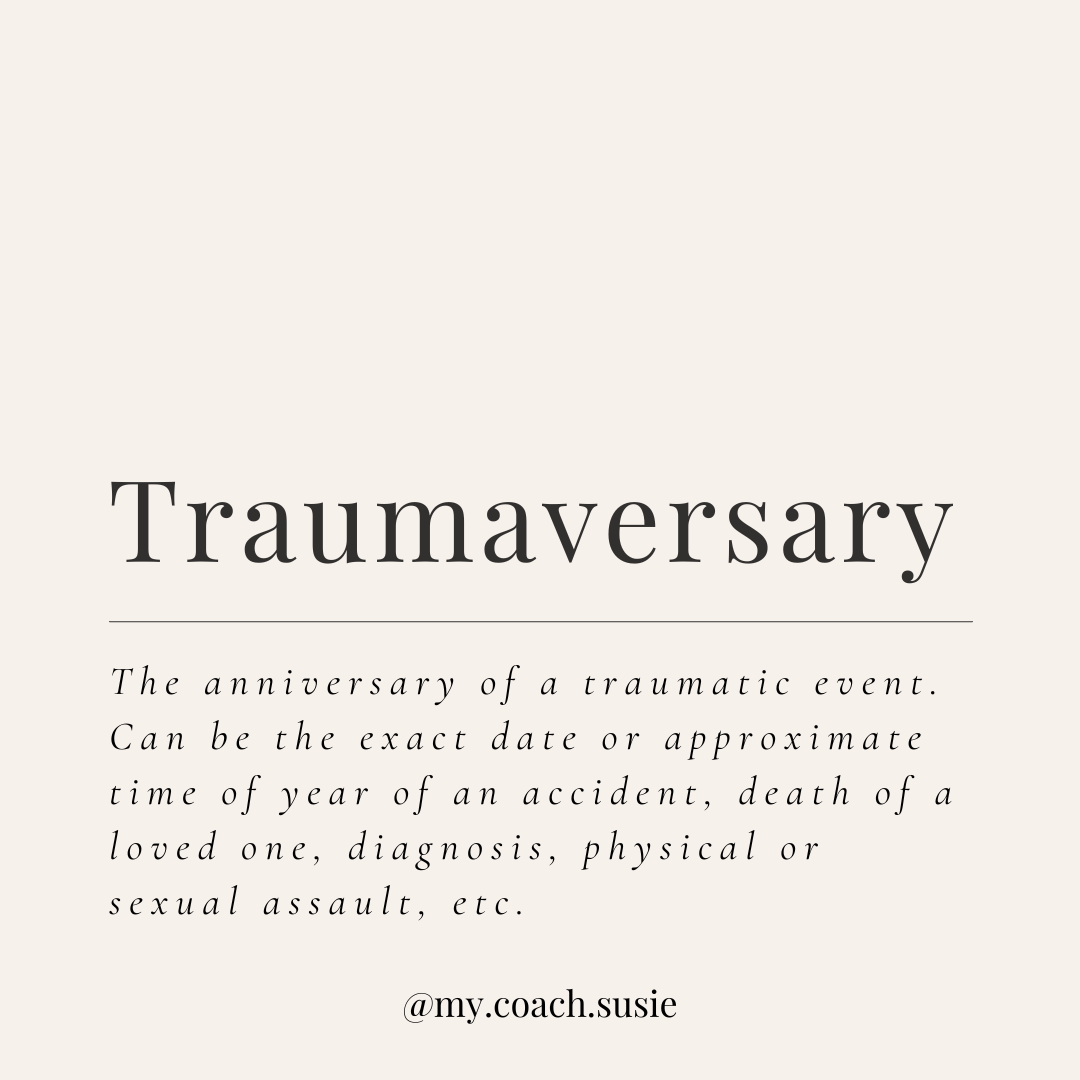Hi, it’s me, Susie Miller Wendel, your go-to trauma recovery coach. Today, I will be discussing the concept of traumaversary — an often overlooked but significant aspect of healing from trauma. I would also like to share my story with you, as I have been through trauma and have had to deal with the emotional impact of traumaversaries myself. So, let's dive in and explore this topic together.

Traumaversaries - What They Are & Tips on How to Cope
What Is a Traumaversary?
A traumaversary is the anniversary of a traumatic event. It is a time when individuals may experience a surge of emotions, memories, and triggers associated with their past trauma. This annual recurrence can intensify feelings of anxiety, sadness, and unease, making the healing process more complex.
My Experience
Today marks a DECADE of my traumaversary when my ex assaulted me in our family home. It feels so long ago and like yesterday at the same time.
I have always felt weird about my emotions around this event. I view it as the worst night of my life and the best night of my life all in one. It feels funny to say an event like that can be the best night of my life, but you’ll find out why.
It was the worst night for obvious reasons; it was terrifying, painful (physically and mentally), demoralizing, and utterly chaotic, to name a few.
But it was the best night because it got me to FINALLY take action and leave my abusive marriage, which I had been wanting to do for SO long. It got me to change the locks and file for divorce. I decided I wouldn't have my kids see me stay in a relationship where I was being abused. It set me free.
Normal Traumaversary Feelings
I want you to know that on your traumaversary, it is completely normal to:
💫 Have mixed feelings about what took place.
💫 Feel a higher level of anxiety, stress, or depression.
💫 Have flashbacks, thoughts, and feelings come up about what happened.
💫 Be triggered by certain sounds, smells, places, and people.
💫 Feel emotionally drained.
What To Do if You Have a Traumaversary Approaching
💫 Limit any intake of what could be triggering.
💫 Ask for support from friends, family, loved ones, your coach or therapist.
💫Practice self-care. Book a massage, get your hair done, buy yourself a big bouquet of flowers.
💫Release your feelings by journaling.
💫Recognize the milestones that you have already reached in your recovery.
💫Do a special activity. Take that trip, book the class you've been wanting to do, spend some time in nature. Anything that lights you up.
How I Handled My First Traumaversary
My first traumaversary, I took a trip with my sister to Washington State, where we hiked Mt. Baker. It was a guided hike, but when my sister and I showed up expecting a group, it turned out we were the only two people going.
Two strong and burly guys accompanied us and helped us set up camp. They cooked our meals over the campfire and taught us glacier hiking methods. It was kind of hilarious having all that help for just the two of us.
After our full day of glacier hiking, we spent our last night on the mountain, and the next morning, we made our way back down. It was the anniversary date of my assault, so coming down that mountain after completing what turned out to be a grueling 17 glacier-hour hike felt pretty damn amazing. I was so happy to be where I was, no longer stuck, reconnected with people I had been isolated from, and starting to heal (though I had a long way to go).
This year I'm not doing anything elaborate, and I'm okay with that. I'm working on my business where I coach people on their own experiences with narcissistic abuse (talk about coming full circle 😊). I'm overall feeling an immense sense of gratitude for my peace and freedom.
Traumaversaries can be complex and challenging for survivors, but it's crucial to acknowledge that your emotions and experiences during these times are valid and normal; just know that you can rebuild your life after trauma. I've shared my story and strategies for coping with traumaversaries, and I encourage you to proactively care for yourself on these significant dates.
As we journey toward healing together, feel free to seek support when needed. I'm here as your trauma recovery coach, offering guidance, coaching, and understanding. I want to help you recover from emotional trauma. You're not alone, and there's hope for a future filled with peace, freedom, and growth.
